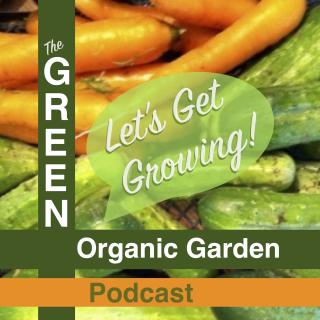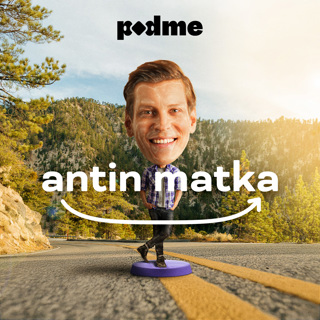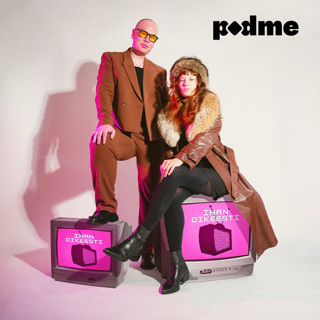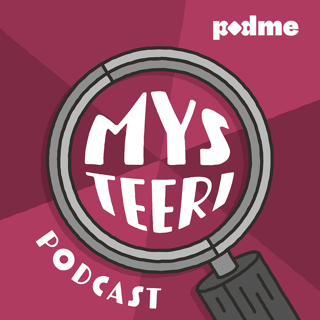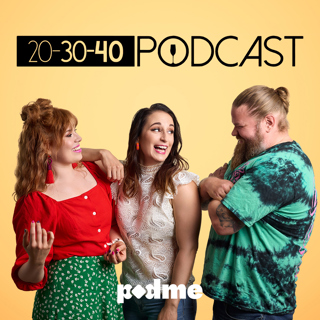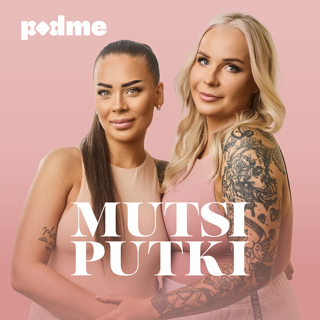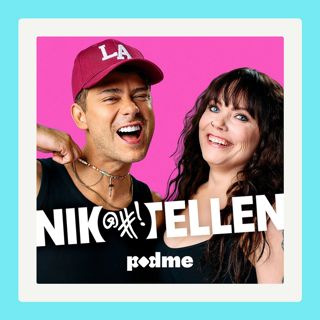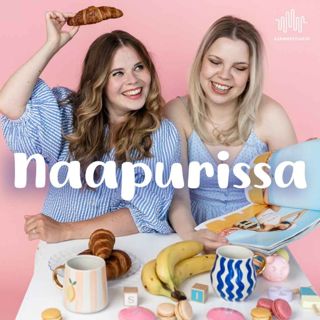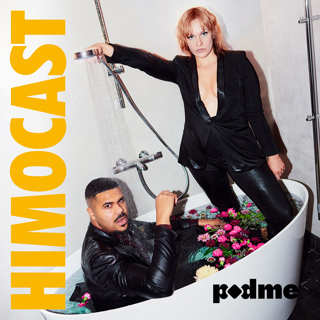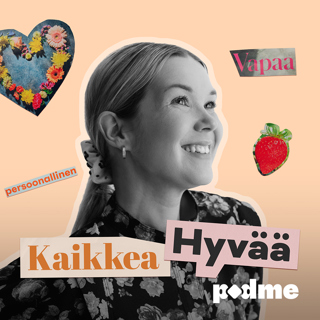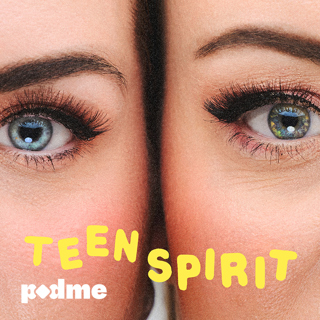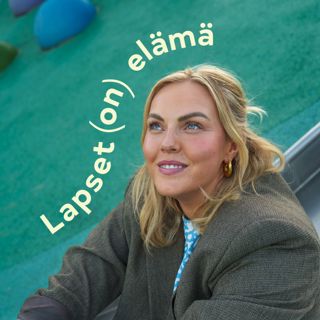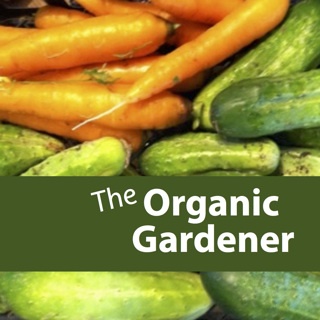
280. The Organic No-Till Farming Revolution | Growing For Market | The Greenhouse and Hoophouse Grower’s Handbook | Andrew Mefferd | Cornville, Maine
To win a copy of Andrew’s Book answer this poll where you can enter the raffle. And remember you can get a 20% discount by using the code: garden on a subscription to Andrew’s awesome publication Growing for Market magazine or any of his books or the books in their online store. I know you are going to love this interview as much as I did. Remember to share this episode with a friend! The Organic No-Till Farming Revolution: High-Production Methods for Small-Scale Farmers The Greenhouse and Hoophouse Grower’s Handbook: Organic Vegetable Production Using Protected Culture Andrew Mefferd is editor of Growing for Market magazine. He has spent 15 years working on farms in six states, including a year working on a no-till research farm, and worked for seven years in the research department at Johnny’s Selected Seeds . He travels around the world consulting with researchers and farmers on the best practices in greenhouse growing and sustainable agriculture. He is the author of The Greenhouse and Hoophouse Grower’s Handbook, and has a passion for promoting local farming movements. He lives and farms in Cornville, Maine. The Greenhouse and Hoophouse Grower’s Handbook: Organic Vegetable Production Using Protected Culture coupon code for your listeners for either the book or a subscription! OGP New Society willing to give away a book its really up to you to decide how to give the book away!! I’m so excited to hear that because I usually would give the copy you gave me away but it’s one of the ones I really want to keep in my library. Well I love my listeners that’s amazing! They are all dedicated to growing a greener future by saving the planet not just growing food but growing an organic oasis. I’m not from Maine, and moved here and love it! So I feel I can
15 Heinä 20191h 36min

Replay of my interview with Julia Shanks author of the Farmer’s Office
The Farmer’s Office One of the things my guests have talked about a lot is effective bookkeeping and record keeping whether your a small backyard gardener or a busy market farmer. Today Julia Shanks is going to share her knowledge of business, farming, cooking and restaurants, her books and her new course on how to be the most effective producer you can be and how to enjoy growing a successful garden. Julia Shanks Author of the The Farmer’s Office: Tools, Tips and Templates to Successfully Manage a Growing Farm Business is here today to share her brilliance and talk about her new course the Farmer’s Edge starting January 11th, 2017! FULL SHOW NOTES COMING SOON! Let’s Get to the Root of Things Which activity is your least favorite activity to do in the garden. No, I love it all. I can’t get into the garden enough. I love weeding in the morning with my coffee I find it meditative . . . What is your favorite activity to do in the garden. Probably, I do enjoy the weeding I get the weeds in the thread stage and I get to see the clean beds…. just sitting and pondering the different cycles vegetables behind watching the vegetables.. What is the best gardening advice you have ever received? Well, I’m thinking the most recent gardening advice there’s a dfference between decomposing vegetables and compost my compost system isn’t very good, that’s I tried that. as long as it’s composting well, if the worms the die… the compost gets really stinky, I have a lot of worms in my soil, I feel like I’m vermi-composting, it’s aerated, You have to drill al to of holes, holes in the bottom of the bin… as you put not gonna get the same air s A favorite tool that you like to use? If you had to move and could only take one tool with you what would it be. I don’t have a lot of tools, I need my hose to water, I just got drip irrigation I have a trowel, a Well, I just got the drip irrigation hoses, I bought them at home depot, I just snaked them around the garden… water doesn’t plant everything pretty darn close small garden, 100-200 feet was enough… especially with the drought, on the be...
1 Heinä 201958min

Replay of interview 102 with Richard Wiswall from The Organic Business Handbook
Since Ellen Polishuk and I talked about my interviews with Richard Wiswall and Julia Shanks last week I thought I’d replay them for listeners this week. Here’s the amazing Richard Wiswall. Welcome to today’s episode of the Organic Gardener Podcast! I am thrilled to introduce my guest who has written an amazing book about the business of organic farming that I think will inspire listeners to think about the options for their future. His book starts out peaking interest with a quote from a talk a fellow farmer gave at the New England Vegetable and Fruit conference “Sometimes I think I should have listened to my parents and become a doctor or a lawyer, but you know, I don’t think I could take the pay cut.” Eventually he would write the Organic Farmer’s Business Handbook: A Complete Guide to Managing Finances, Crops, and Staff – and Making a Profit. This book comes with a companion CD that included templets for creating worksheets, budgets including cash flow projections, and even payroll. He’s manager of the Cate Farm a family owned and operated organic farm in Central Vermont that includes 22 acres and seven 100-foot long greenhouses of organic vegetables, medicinal herbs, and flowers. Everything they sell is certified organic. Tell us a little about yourself. So I’ve been farming full time for about 35 years now. Business has changed over the years, for the first 20 years, I was a highly diversified organic vegetable, herb and flower produce that sold to markets in Central Vermont and through Deep Root Organic Coop, which is a growers coop that sells to Boston and NY to bigger stores. We had a CSA in the nineties, went to Farmer’s market for 25 years. As I get older I don’t want to work as long and hard as I used to so we no longer do the CSA or Market, even though I’m big fans of both of them. The other thing I’ve been doing besides farming is to help other farmers trying to help tune up their businesses, because I’ve seen a lot of people after 9-10 years they’re struggle after making long hours, their burning out because the money is not there. I was helping others at conferences etc so I wrote the book because I saw things that came up over and over again that seem to be point needing to be addressed. In short farmers love doing what they do for all the right reasons, being outside and watching plants grow, and nurturing them and producing delicious nutritious food, what could be better there’s a fundamental satisfaction from that. I don’t think anybody gets into farming because they want to be a business person, and study business sheets and cash flow projections but ultimately the reality is farming is a business and you have to know the business end of it where you’re not gonna succeed. You can be as ecologically sustainable but if you aren’t economically sustainable that goes out the window because you wont be in business anymore. I try to get people to spend a little time to work on their business not just in their business, and ask them to set aside 3 hours to do some long range thinking and planning and look at the business and also analyze where the money comes and goes so you can work fewer hours and make more money, ultimately that would be great that’s what a lot of people want. I think a lot of...
1 Heinä 20191h 9min

272. Start Your Farm for the 21st Century Sustainable Farmer | Plant To Profit | Ellen Polishuk | Washington DC
I am delighted to introduce my amazing guest from Plant to Profit Farm Consulting Ellen Polishuk is here to share her amazing knowledge and story as well as her new book available on amazon or her website! Start Your Farm: The Authoritative Guide to Becoming a Sustainable 21st Century Farmer Listen to your first audio book for free by clicking on our audible affiliate link Tell us a little about yourself you were telling me today in Washington DC you had snow today. Yup! as you said, just the end of January having a little bit of snow raised in the DC Suburbs 55 been here a long time whole career has been in agriculture vegetable gardener part of a farm called Potomac Vegetable Farms 25 year career there growing and selling organically grown vegetables herbs cut flowers Tell me about your first gardening experience? It’s good story everybody has to start somewhere easiest way to describe it I think I was just born loving plants, they were sort of my sort of pets as a little child I would collect indoor plants in my room. I got a community garden plot when I was like 8 goes back quite a long time even though I grew up in a cul de sac, the most ideal suburban childhood but somehow agriculture grabbed me ended up getting a degree in horticulture in college not growing up on a a farm. Do you want to tell listeners what sustainable agriculture maybe means to you did you learn that in horticulture school? As a young person when I first 15-16-17 years old, luckily I worked on farms, that were quote unquote, “organically” started getting Organic Gardening magazine like everyone else, keep up and see what other people were doing sustainable ag organic more specific and legally
24 Kesä 20191h 4min

278. Chefs turned Farmers | Confluence Organic Farm | Julia Henderson | Sebastopol, CA
I’m super excited to introduce my guest today Julia Henderson from Confluence Farm who is not just a gardener but a chef who is going to share their garden journey from restaurants to organic farming and more! Sorry folks show notes to be completed in the future! Enjoy the audio! Rockstar Millennials Confluence Farm is an organic vegetable and flower farm located in Sebastopol, CA along the picturesque Green Valley & Purrington creeks. Julia and Andy are chefs turned farmers who truly understand high quality products and making people happy. We focus on generating the healthiest soil we can in order to grow the most nutrient dense and healthy vegetables possible. A confluence is when two entities come together, be it water or people. Our food and flowers bring people together, whether it be at on our farm, self grown and catered events, or nurturing our own community and family through markets. Our motto is “Come Together, Eat Well”. Tell us a little about yourself. My name is Julia I own a 3 acre farm an hour north of SF certified organic vegetables I used to be a pastry chef my husband we met in San Francisco always had a garden only a small amount about 4 years ago we were both looking to transition away from the restaurant world we still wanted to do something with food the property where I grew up it had been bought to be a farm when my flimsy original moved there saw the potential for it to be a farm we decided to move back having worked in the food industry committed to working with local growers for the ingredients we used in the food husband especially had the green thumb out of the two of us inspired by what he saw dove in headfirst neither of 3rd year exciting backstory farmers mart Tell me about your first gardening experience? my mom has quite a green thumb always had a garden some vegetables still has a garden to this day right next to the farm flowers perennials least cherry tomatoes lettuce swiss chard what ever else she was interested in can’t say I had a super green thumb <span...
17 Kesä 201955min

273. Mermaid’s Garden NYC | Seafood CSA and Fish Market | Mark Usewicz | Brooklyn, NY
For Valentine’s Day I asked Mark Usewicz from Mermaid’s Garden NYC to talk to us about their Fish Market and CSA since it seems like the news is all about the Mediterranean diet. I love fish, and caring for sustainable Oceans and water is important to me, and I think it probably is for you too. I’ve got some great videos of my mom making her delicious fish I’ll try to add at the end. Sorry it took so long to get this out there, but I always say the perfect interview happens when just the right listener is in the audience! MermaidsGardenNYC.com Mermaid’s Garden On Instagram Check out Mark’s pieces in Martha Stewart Tell us a little about yourself, Mark Usewicz. I was trained as a chef restaurant business lived in NYC last thing I wanted to do was open my own restaurant and the next worse thing is open my own business but my wife was in the restaurant business trained as a fish biologist We saw this need for a great fish market in our neighborhood, there really wasn’t anywhere great to buy fish We knew a few fishermen and we built this network started a fish share kind of like a CSA or CSF but we’re not the fisherman Started by connecting our customers with a weekly fish sourced in the Northeast we work with fishermen on Long Island Massachusetts Rhode Island Developed this whole network of aqua-culturists small boat fisherman retail space fish share going retail market all domestic small boat fisherman sourced seafood I grew up in Buffalo, NY so other side of the state a lot of people don’t know where that is in NYC, different vibe different pace I grew up on Long Island and I have sooooo many fond memories of buying fish on the docks from the fisherman in Freeport on Long Island. My mom would cook all the fish from scratch, cut the heads off scale it etc… and then there’s been so much on the news this year about
8 Kesä 201927min

271. Sustainable Agriculture and Food Justice | Farm School NYC | Onika Abraham | Brooklyn, NY
Onika Abraham from Farm School NYC shares her passion for sustainable agriculture and food justice education in New York’s 5 Boroughs. I’m so excited to introduce my guest from Farm School NYC Onika Abraham! Tell us a little about yourself. I reside here in beautiful Brooklyn NYC. I’m originally a New Yorker from the lower side Manhattan, if anyone is familiar with NYC accents, it’s obvious. Grew up in NYC from parents who grew up on farms, always loved visiting my grandparents seeing them grow what they eat and always inspiring to me! I have come full circle by being the director of Farm School NYC Tell me about your first gardening experience? I have to say, I grew up on the lower east side on the 18th floor an apartment lucky to have a little terrace little concrete shelf does not sound like a bucolic farm but was definitely my first gardening experience My mother grew up on a mid size family farm in Alabama, when she moved here she brought her love and passion for growing things with her and she just recreated that in a little postage size terrace. I really grew up in pots and containers on my parent’s terrace had to be flowers house plants and all different flowers zinnias marigolds were some of her favorites I remember from when I was a kid! Awwww that’s like the sweetest story. I didn’t really get to meet a lot of people from NYC proper, even tho my cousins lived on the Upper East Side, but we only saw them at Christmas and it’s fun to imagine, a little children’s book. Have you seen Sarah Stewart’s book The Gardener? What is FARM SCHOOL NYC? Is it for adults for kids? What kinds of classes do you have? FARM SCHOOL NYC is for adults folks who are interested in learning how to grow sustainably sustainable organic practices people who want to use that knowledge base to address some of the inequities in our society resources health wellness access to...
7 Kesä 201934min

275 Part 2. Certified Naturally Grown Flower and Vegetable CSA | Michelle and Larry Lesher | EASTWard Gardens
Part 2 Michelle and Larry Lesher from Eastward Gardens drop golden seeds galore in this episode about running a small successful Flower and Vegetable CSA in Indiana. Final question- if there was one change you would like to see to create a greener world what would it be? For example is there a charity or organization your passionate about or a project you would like to see put into action. What do you feel is the most crucial issue facing our planet in regards to the environment either in your local area or on a national or global scale? Understanding the importance of how we teach our children. Long days inside, sitting down in a class room was not what we were designed to do. We were designed to move, to be in nature and to grow our own food. There is a place for textbooks but it should not be the primary line of education for our children. They need hands-on practical education. We would love to see more schools participate in true education, using agriculture as a lesson book. In every school should be a garden education fresh air sunlight nutrition experience principles of health important health of growth of minds and bodies passion likes mother sand farther really try to get I was thinking about this question I think it’s important using the garden as an education tool greener world part if we could get people to understand the impact that agriculture has on our planet carbon secessions understand how much we could change some of that through our ag practices when we do that disease problems associated self inflicted sedentary lifestyle choices don’t think about is our food is fundamentally most plants photosynthetic level functioning even just above 60% 90- photo rusvaretraols secondary metabolites food nourishing dealing with on a global scale re-imagining what agriculture can be part to see what can be don’t think we’ve begone to tap the genetic potential world would be a much How do we connect with you? eastwardgardens on Instagram <a...
3 Kesä 201956min
